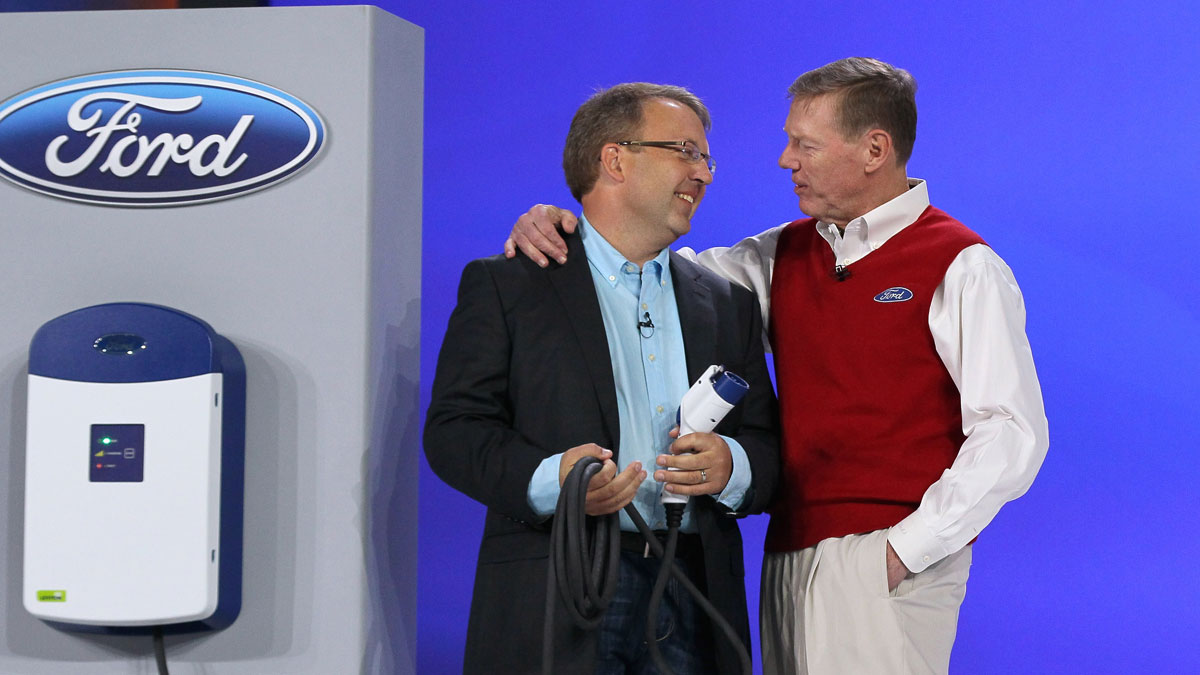Ford just joined the ‘ethical cobalt’ blockchain gang

Picture: Getty Images
Car giant Ford has decided it needs to prove to its customers that it only uses ethical cobalt in its electric vehicles.
The American carmaker is partnering with Huayou Cobalt, IBM, LG Chem and RCS Global on the development of an open, industry-wide blockchain platform that will start with tracking cobalt but could eventually be used to trace and validate other minerals as well.
“We remain committed to transparency across our global supply chain,” says Lisa Drake, vice president of global purchasing and powertrain operations for Ford.
Cobalt is in high demand for its use in lithium-ion batteries. The typical electric vehicle (EV) battery requires up to 9kg of cobalt and a standard laptop requires around 30g of the mineral.
Market forecaster Benchmark Mineral Intelligence sees the use of cobalt in lithium-ion batteries tripling by 2026 due to the rapidly growing EV market.
But the origin of cobalt has become a major consumer issue because of the use of child labour in some countries like the Congo, which supplies around 60 per cent of the world’s cobalt.
Companies such as Apple — which needs cobalt for its phone batteries — are putting pressure on suppliers to prove they buy from ethical miners.
The London Metal Exchange also last year launched its own investigation into whether or not any of the cobalt it was trading came from unethical sources.
- Subscribe to our daily newsletter
- Bookmark this link for small cap news
- Join our small cap Facebook group
- Follow us on Facebook or Twitter
Stockhead reported in October last year that IBM was already working on bringing an “Uber-like” blockchain solution to the mining sector that can track minerals from mine to market.
Secure tracking would assure consumers that materials in products such as mobile phones and electric vehicles had been mined ethically in regions known for child labour.
Blockchain is best known as the basis of cryptocurrencies such as bitcoin. But it has many other potential applications such as securing digital contracts and supply chain data.
The technology allows a publicly available, tamper-proof, traceable record of digital transactions that can be automatically logged in the physical world using radio frequency ID tags (RFIDs).
The blockchain pilot is already underway and the aim is to demonstrate how materials in the supply chain are responsibly produced, traded and processed.
The partnership has each major stage of the supply chain, from mine to end-user, covered, according to Ford.
China’s Zhejiang Huayou Cobalt mines cobalt in the Democratic Republic of Congo (DRC), South Korea’s LG Chem buys cobalt to make its EV battery cells and Ford sticks the batteries in its EVs.
IBM provides the IT knowhow and RCS Global develops and manages supplier audit programs to ensure the responsible sourcing performance of the supply chain.
“With the growing demand for cobalt, this group has come together with clear objectives to illustrate how blockchain can be used for greater assurance around social responsibility in the mining supply chain,” says Manish Chawla, general manager of Global Industrial Products Industry at IBM.
Under a simulated sourcing scenario, cobalt produced at Huayou’s industrial mine site in the DRC will be traced through the supply chain as it travels from mine and smelter to LG Chem’s cathode plant and battery plant in South Korea, and finally into a Ford plant in the United States.
An “immutable” audit trail will be created on the blockchain, which will include corresponding data to provide evidence of the cobalt production from mine to end manufacturer.
Participants in the network will be validated against responsible sourcing standards developed by the Organization for Economic Cooperation and Development.
While the initial focus is on large-scale miners (LSMs), another objective of the pilot will be to help increase transparency in artisanal and small-scale mining.
IBM said work is expected to be extended beyond cobalt into other battery metals and raw materials, including minerals such as tantalum, tin, tungsten and gold — which are sometimes called conflict minerals — as well as rare earths.
UNLOCK INSIGHTS
Discover the untold stories of emerging ASX stocks.
Daily news and expert analysis, it's free to subscribe.
By proceeding, you confirm you understand that we handle personal information in accordance with our Privacy Policy.








